Hubert Joly (Best Buy) : “Managing means creating meaning”

The Big Boss
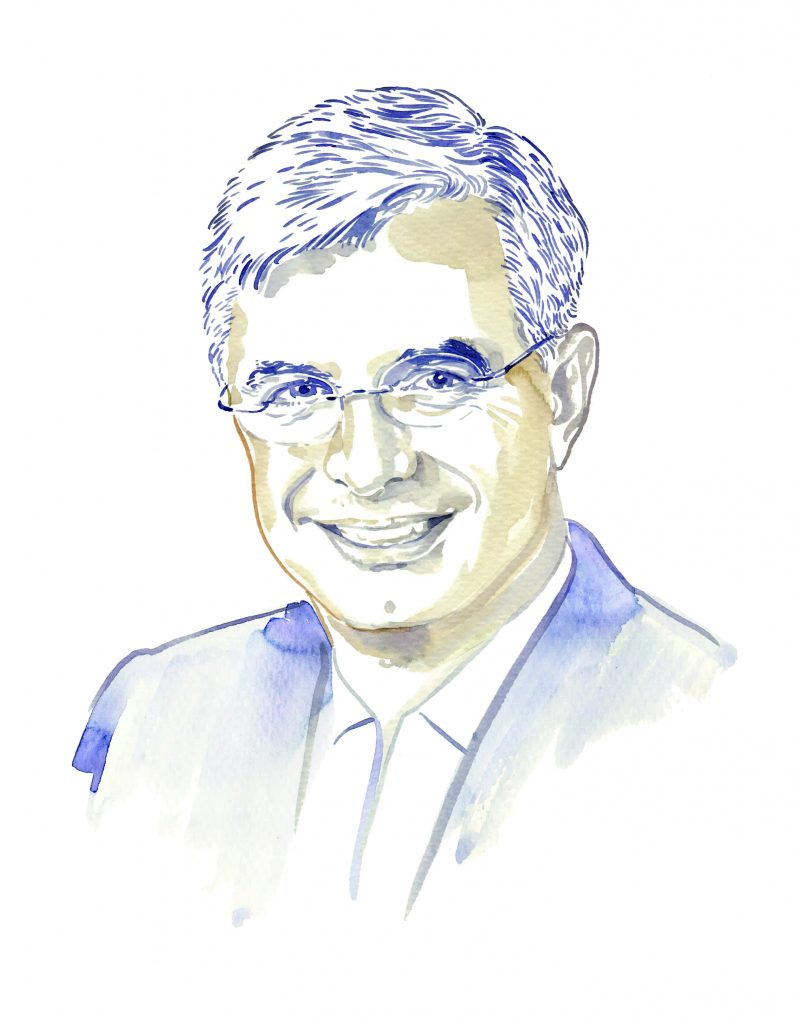
He’s a star in the US business world. When he ended his term as managing director of Best Buy, the North American leader in sales of mass-market electronics products, he was showered with praise. In seven years, the “Frenchy” Hubert Joly was able to boost the sales, margins and shareholder value of this enterprise with 125,000 employees that had been threatened by “pure play” companies, Amazon in particular. An impressive feat that led Harvard Business Review to rank him one of the top 100 most successful executives in the world. In 2012, however, his appointment came as a surprise.
It’s true that he had no real experience in retail sales, but he had a strong CV as a corporate savior, having participated in the turnaround of Electronic Data System’s activities in France, the restructuring of Vivendi’s video-games division, and the strengthening of the Carlson Group’s restaurant and hotel operations. Building on these top-level experiences, Hubert Joly, who’s about to turn 60, now wishes to share his knowledge in order to foster a more humane kind of leadership that is no less effective.
This is the goal of the Purposeful Leadership chair that he established at HEC Paris last year. Convinced that a company’s ultimate purpose is to contribute to the common good, Hubert Joly aims to encourage young HEC students, tomorrow’s leaders, to find meaning in their work and to inspire in them the sense of engagement that drove him when he relaunched the Best Buy chain. So, with unfeigned pleasure and sincere goodwill he welcomes the chance to be questioned by three HEC students eager to learn the secrets of his success.
The Students
-
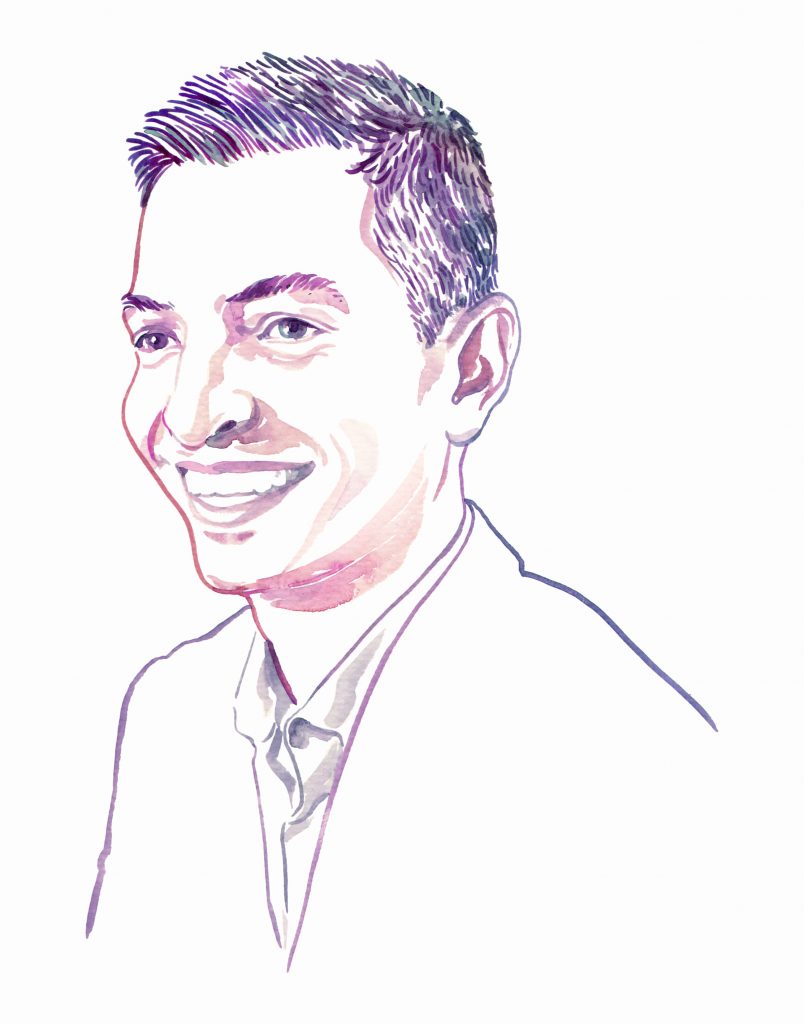
Pierre Guyot MBA.19 As head of digital products and then of international marketing, Pierre successfully oversaw the launch of innovative B2B products in North America and Europe.
2013 Master’s in industrial engineering and product management at Marseille Central School.
2015 Vice-president of marketing and products at IMDS Canada (Montreal)
2019 MBA HEC in digital innovation. Head of products for the Hilti group. -

Teejana Beenessreesingh MBA.19 President of the Club Luxe (Luxury Club) of MBA HEC, winner of the LVMH Challenge, she worked in an investment and portfolio-management bank in New York. 2008 Bachelor of Science in management and economics at MIT (Cambridge, US) 2011 Founder of Bee.JooS, an online brand combining travel and shopping experiences (New York) 2014 Asset manager at Sheridan Asset Management (New York)
-
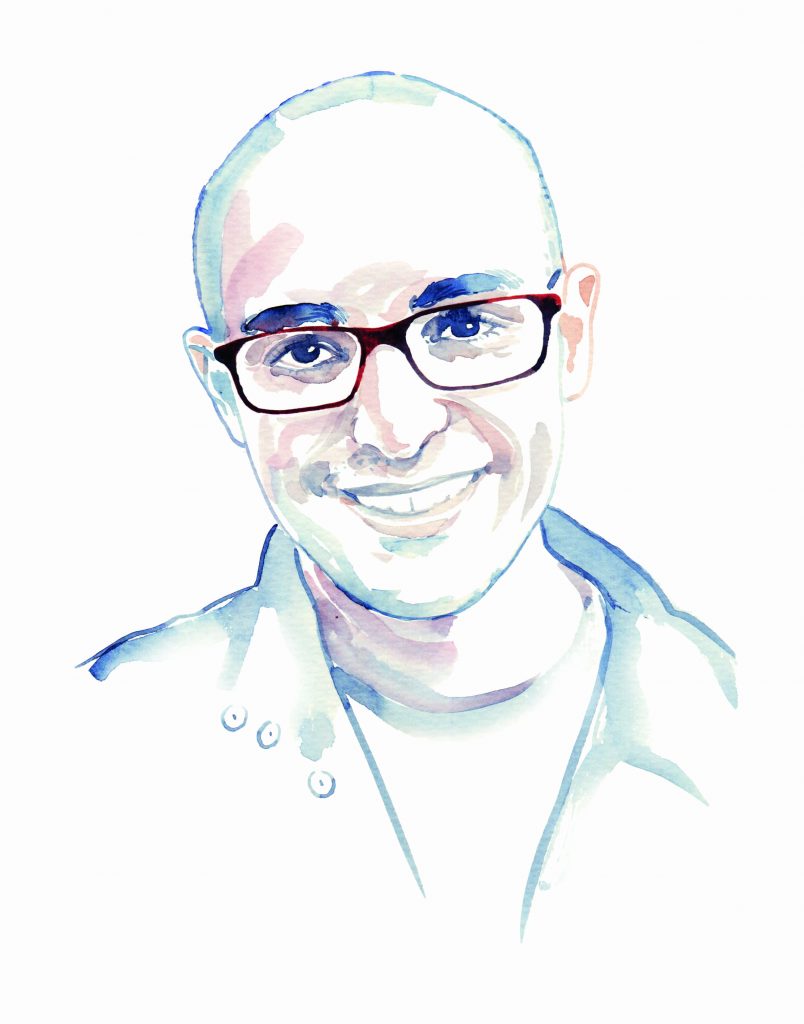
Yann Sassi H.21 President of the literature and philosophy association on the Trois Lettres campus and vice president of KIP, the HEC Paris students’ media outlet 2014 Economics baccalaureate, with distinction 2017 Entered HEC and began to work toward a second bachelor’s in economics at the Sorbonne. 2018 Helped students prepare for oral exams to enter top business schools, at Saint Michel de Picpus high school in Paris.
« I adhere to a certain philosophy of business. »
Teejana Beenessreesingh (MBA.19): When you came to Best Buy in 2012, the company was in bad shape, competing against e-commerce sites like Amazon. You managed to fight them off. How did you do it?
Hubert Joly: Amazon was certainly expected to kill us off! (laughter) Buy was threatened by the “showrooming” phenomenon. The risk was that customers would visit our stores, spend time with our salespeople to learn about products, and then eventually buy the products from online retailers at lower prices. In addition, at that time in the US, pure players did not have to pay a sales tax, the equivalent of a value-added tax, which was a significant advantage for them. We fought back in several ways. First of all, we made sure that our prices would no longer work against us.
We matched them with online prices, promising customers we would reimburse them if they found the same product cheaper elsewhere. Secondly, we worked to improve our customer services, both online and in our stores. Our stores, in fact, turned out to offer some important advantages, particularly concerning logistics. Our Store Pickup system, where a product is ordered online but picked up in a store, made it possible for a customer to get a product in just one hour, an incomparably speedy delivery. And, around 70% of the US population lives within 15 minutes of a Best Buy store!
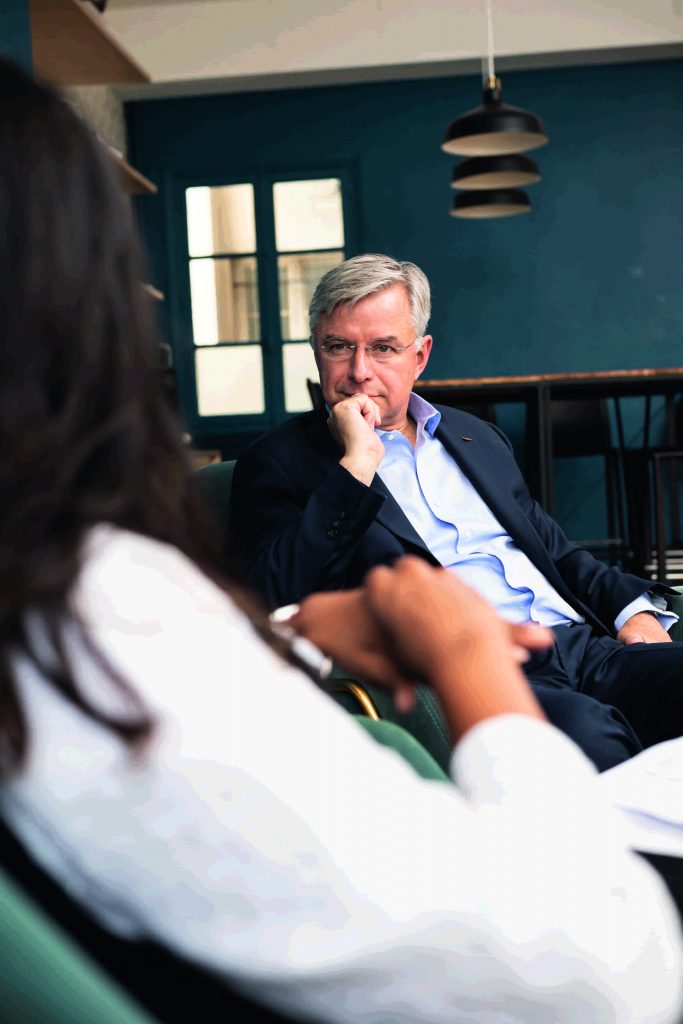
Our stores also allow us to provide better services to our suppliers, which make up the second pillar of our business, after customers. The major technology players (Apple, Samsung, Sony, Microsoft, HP, Google, Amazon, Facebook…) invest billions of dollars in R&D to develop innovative products. They need to showcase these products, which is not always possible online or in supermarkets. Therefore, they invested in our stores so that they could present their products in spectacular ways. We killed “showrooming” by concentrating on “showcasing”.
Best Buy has become the place where technology giants unveil their latest innovations. We proved that we could be competitive against e-commerce players while also developing a unique market position and distinctive advantages. We weren’t obsessed with Internet sales. Of course we invested in our online presence and modernized our web site, but we focused on what made us important to our customers. In the US, Amazon and Best Buy account for only a quarter of total electronics sales. And this isn’t a zero-sum game, because we both have shares of the market. It’s other players that are having trouble!
Teejana: It’s often said these days that “the store has become a theater”. What did you have to change to create an innovative customer experience?
Hubert Joly: Everything comes back to questioning our purpose, the role we want to play as a company with regard to our customers. Best Buy’s role is to help customers live better thanks to technological solutions adapted to their needs. Our strength lies in the interaction between our salespeople and our customers. Our salespeople try to establish a dialogue with each customer to understand what he or she is looking for, and to offer the best possible advice. Another example of our added value.
We’re the US leader in sales of televisions. A TV is an important purchase: you want to be able to touch it, turn it on, test its sound, verify the quality of its images… In April 2018, we established an exclusive partnership with Amazon to market their new intelligent TV product, Amazon Fire TV, controlled by the Alexa personal-assistant system. We are the only retailer offering the line of television sets equipped with these services. Jeff Bezos visited our Bellevue, Washington Best Buy store in person to announce this partnership. He explained the thinking behind it very simply: Before deciding to buy a new TV, a customer needs to be shown the TV and told how it works. This is possible in a store but not online!
Yann Sassi (H.21): Why didn’t you try to export the Best Buy model to France, since this is a market that you know well?
Hubert Joly: Best Buy got out of Europe and China a few years ago. Our strategy was to focus on the North American market, which is a huge market that still has considerable potential. Even though we are leaders, we only have a 15% share of total electronics sales. In addition, our business is relatively local.
A vision of leadership
Pierre Guyot (MBA.19): Satya Nadella said that he transformed Microsoft’s culture by giving his managers the book Non Violent Communications. In addition to the strategic changes you made at Best Buy, how were you able to change the culture of this company with 125,000 employees?
Hubert Joly: This transformation was centered on a philosophy of business that I hope to refine through the Purposeful Leadership chair established at HEC last September. Purposeful Leadership is based on several principles. The first: work is an essential part of our humanity, and it should contribute to our efforts to find meaning in life. Second principle: a company is a human organization made up of individuals working toward an end goal, which should not be to make money, but to contribute to the common good.
At Best Buy, our purpose is to enrich people’s lives through technology. A magical cultural transformation will take place if each employee manages to connect his own search for meaning with the company’s main goal. The role of a leader is to create an environment in which authentic human connections can be made, both within the organization and with clients outside the organization. We can conceive of leadership in many ways. The image of a strong leader who has unlimited power and a lot of money is one that may entice brilliant graduates of HEC and other elite schools, but is this really an image that should inspire us?
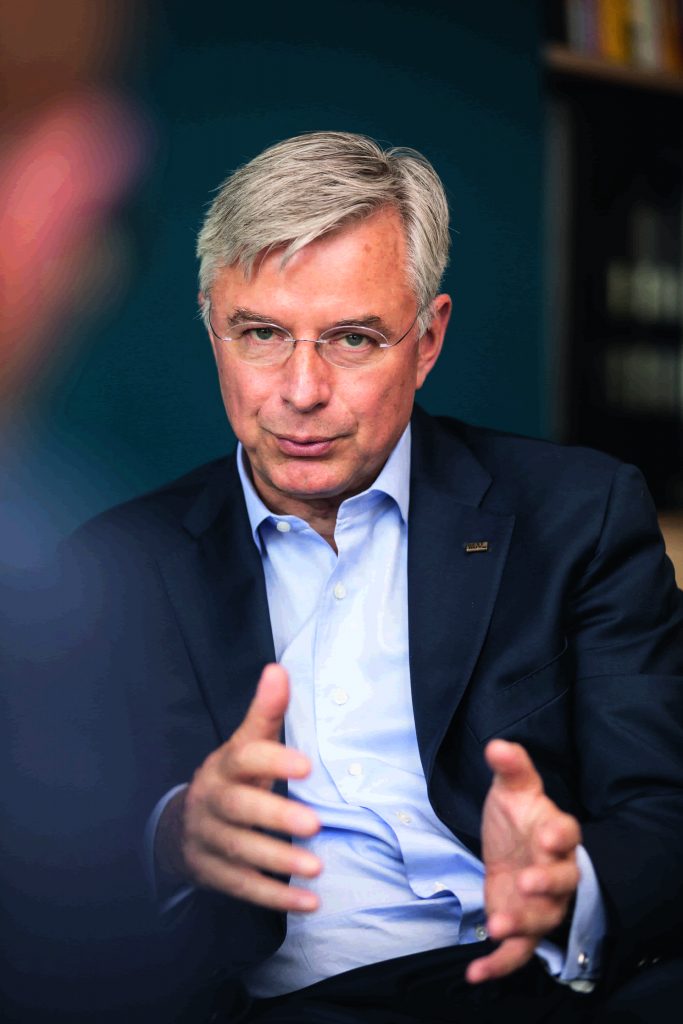
1981 HEC diploma; ranked the top student in his class. Appointed the assistant of Jacques Mayoux, CEO of Sacilor 1983 Diploma from Sciences Polytechnique. Went to work for McKinsey.
1996 President of Electronic Data Systems France; vice-president for Europe.
1999 CEO of Vivendi Universal Games
2001 Executive Vice President, Vivendi Universal
2004 CEO of Carlson Wagonlit Travel
2008 CEO of Carlson Companies, replacing Marilyn Carlson Nelson, daughter of the founder.
2012 CEO of Best Buy, leading the company’s turnaround. 2019 Hands the Best Buy reins to Corie Barry and becomes the company’s Executive Chairman.
The new HEC chair aims to develop a vision of leadership based on the “savoir-être”, the “knowing-how-to-be”, of a leader, which we refer to as the five Be’s: Be clear about your purpose and how you connect it to the company. Be clear about your role as a leader, because the purpose of a leader is not to prove that he or she is the brightest, but rather to foster an environment where others can succeed and feel fulfilled. Be clear about who you serve as a leader, because the goal is not to serve yourself but rather to serve your employees on the front line and give them the tools they need to complete their missions. Be values-driven; be authentic.
Because you have to be true to yourself, including to your weaknesses. In my case, I spent years correcting a big mistake: confusing a drive for performance with a drive for perfection. The biggest strength of a leader is to accept his own vulnerabilities and those of his employees. It’s the only way to create a humane environment that will benefit everyone. This is why you feel an amazing energy when you walk into any of our Best Buy stores today. Our employee turnover has been cut in half and we have achieved record levels of commitment. These results stem from the management philosophy that we implemented when the company was in a critical phase — and had even been given up for dead.
Pierre: Did everyone accept these changes
Hubert Joly: The first responsibility of a leader is to decide who should be given power. Employees shouldn’t be promoted solely based on their talents and performance, but also on their capacity for leadership. Studies have shown that for an IQ level of 120 or above, it’s the emotional component that makes the difference. We are guided by this concept when we evaluate our employees. One of the questions I ask when I’m interviewing a prospective employee is “What drives you?” When I was being recruited to be the head of the Carlson group, Madame Carlson asked me, “Tell me about your soul.” It’s impossible to separate the spiritual and emotional from the intellectual. To sum up, in order to change the quality of our management, I changed the way we recruit and promote our managers!
Yann: This is all a bit abstract. Can you give an example of an employee who aligned an individual search for meaning with the goals of the company?
Hubert Joly: I watched the head of a Best Buy store near Boston ask his employees what their dreams were. One said he wanted to buy a house for his family. The manager told him that they would work together to help him develop his skills, move up in the company and make his dream a reality. This may seem like a trivial example, but it’s no more complicated than this!
The manager created a human link. He took the time to listen to his employees in order to understand what motivated them, and then he promised to help them make their dreams come true through their jobs. Achieving something significant doesn’t have to involve huge humanitarian efforts. My personal goal is to make a positive difference for the people around me and to use the platform I have to make a positive difference in the world. I want to have a positive influence on the people I come into contact with. It’s basically a very limited goal! But, it’s the meaning of my life.
Yann: Is this how you answered Madame Carlson when she asked you, “Tell me about your soul”?
Hubert Joly: Yes! You don’t have to do extraordinary things or travel to the ends of the Earth to find meaning in life. It’s a rather Buddhist vision, in fact: the search for meaning, and, consequently, leadership and the management of a company, begin through getting in harmony with oneself. When you do this, you can change the world.
Teejana: Does your concept of leadership involve giving managers the right to make mistakes? And do employees have this same right?
Hubert Joly: I have made a lot of mistakes myself! In choosing employees, for example, I’ve promoted people who didn’t work out. However, I find that focusing on mistakes, trying to find out who has been at fault, is often wasted energy and a useless exercise. I have a story about this issue. Five years ago, two weeks before Black Friday, authorities informed us that our computer systems had possibly been hacked. A potentially catastrophic situation.
I called a meeting of the Best Buy crisis unit, but not to find out who was responsible for this malfunction. I stressed that we were in a difficult position but one that also represented an opportunity to see how we could solve this problem. I expressed confidence in my team. My role as leader was not to identify a mistake but to create energy and channel it toward finding a solution. In fact we hadn’t been hacked; it was a false alarm!
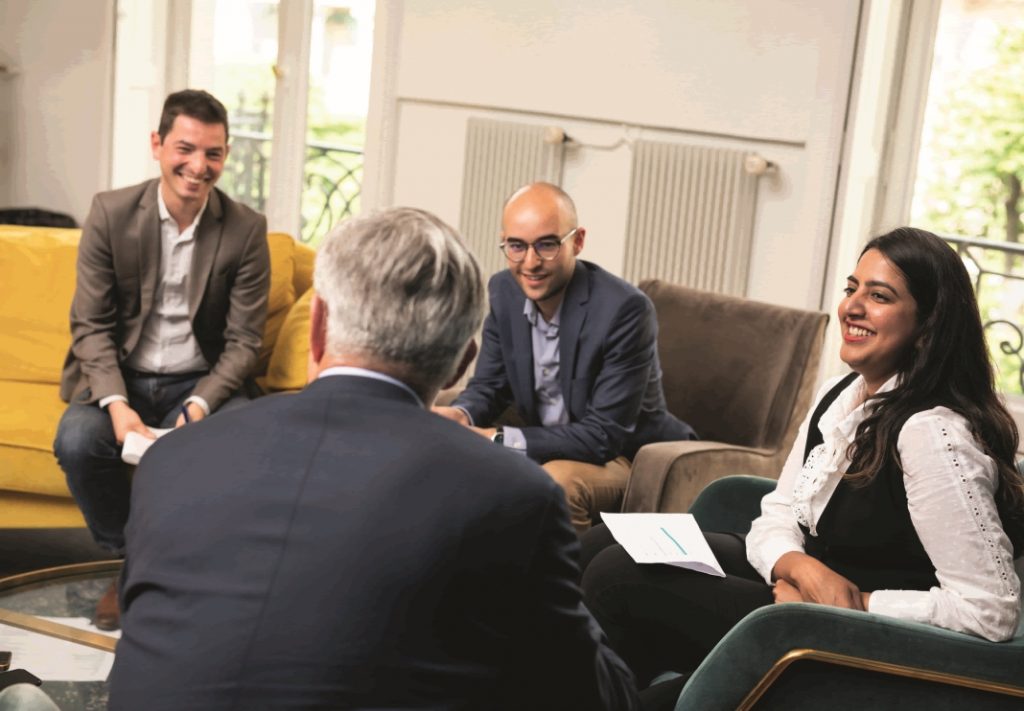
Coaching and feedback
Pierre: Your experience in turning a company around is impressive. Along with emotional intelligence, what other competencies are needed to achieve such a success?
Hubert Joly: I worked with a coach, even though, 12 years ago, this kind of approach seemed unthinkable to me. I even believed that you had a serious problem if you chose to do something like this! I was wrong. In the life of a leader, coaching can be an extraordinary plus. My coach, Marshall Goldsmith, the author of What Got You Here Won’t Get You There, advised me to put into practice the “feedforward” approach.
To give an example, three months after I came to Best Buy, when turning the company around was clearly going to be a major challenge, I asked my team to give my coach their feedback on me. He asked me to choose two or three of the negative points that had been mentioned and that I wanted to improve on. I then met with my team to thank them for participating in this exercise and to tell them which issues I planned to work on, emphasizing that I needed their help and advice regularly. This action helped to create a company culture in which it felt normal to have weaknesses, recognize them and work together to alleviate them. To accept one’s imperfections and ask others for help in dealing with them is very hard – especially for men! – but the result can be tremendous. It creates a dynamic of progress. Now I repeat this exercise every year, targeting two or three issues needing to be improved.
« For an IQ level of 120 or above, it’s the emotional component that makes the difference »
Teejana: Like you I’ve had a Franco-American career. What are the differences between managing a team on one side of the Atlantic and the other?
Hubert Joly: Each country and each company has its own culture. However, there are fewer differences between American and French multinationals than one might think. Leadership concepts are universal. On the other hand, I think that it’s dangerous for a leader in either the United States or France to believe he always has to appear intelligent and strong…when these qualities are ultimately fairly secondary. In fact, it’s necessary to reveal vulnerabilities.
Best Buy’s human-resources director launched a blog in which she revealed that she had suffered from depression for many years. Our employees had a very strong emotional reaction to this. Around 20% of our people had experienced depression during their lives. It’s impossible to ignore such a fact. If a company doesn’t recognize something like this, it will be impossible to create a humane environment.
Another important point: the ability to accept mistakes and failures. Jeff Bezos said during a conference on innovation: “The bigger the company, the bigger its failures should be.” He believed that if all your failures are small, you haven’t strived for anything big. For him, Amazon should make billions of mistakes, in line with its stock values.
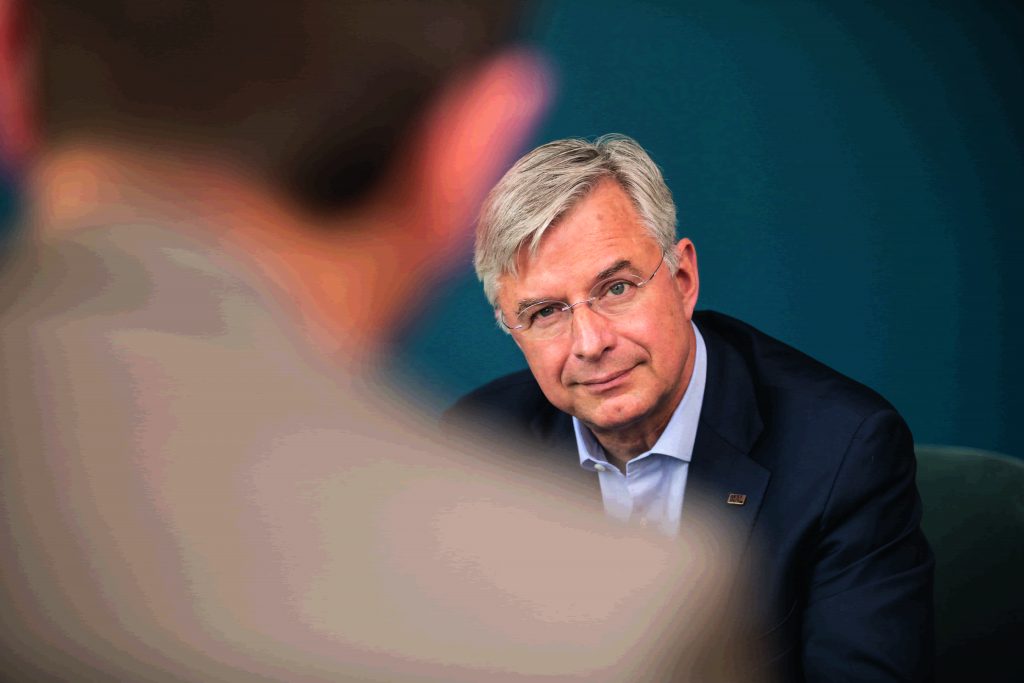
Pierre: If only shareholders would agree with this idea!
Hubert Joly: Yes, but if a company doesn’t take risks, it won’t innovate and it will die. In any case, we shouldn’t use shareholders as an excuse. They are very capable of understanding choices when these are explained to them.
Teejana: How does one deal with injustice and discrimination within a company?
Hubert Joly: Diversity and inclusion are leadership issues. Injustices exist, notably concerning gender and skin color. Diversity isn’t a matter of quotas: it should first be dealt with on the individual level. It’s the responsibility of a leader to make sure that each employee feels that he or she has a place in the company and can truly be themselves there. Studies by McKinsey prove that teams that are diverse perform better. And with good reason: if a company is not capable of reflecting the population whose needs it serves, it is doomed to fail.
Mellody Hobson, a black business leader who heads an American investment fund, recently gave me an example. In hotel bathrooms, the infrared lights on soap dispensers do not always detect black skin. This kind of “omission” in the conception of products reveals a lack of ethnic diversity in the team that has developed them. A similar example is cellphone cameras, which have long been known to have problems taking photos of people with dark skin, and facial-recognition technology is not always very effective either, for the same reason. Google Photos was recently singled out for this problem. Best Buy is making progress concerning diversity and inclusion, even though there is still a lot left to do.
Women now make up the majority on our board of directors, and a third of its members are from ethnic minorities. We keep statistics on pay scales to make sure there is no discrimination. We help young people from disadvantaged backgrounds to get training in new technologies through opening Teen Tech Centers and through establishing scholarships and internships. In the United States, we don’t count on the federal government to deal with these kinds of problems. If we don’t try to do something about this in Minneapolis, home of the head offices of many companies, then who will do it? In our society, a company is the strongest institution, the one that, through its policies and means, has the power to bring about significant changes. In addition, no company will thrive if society falls apart. Companies have an extremely important social responsibility.
Professional path
Yann: When you were at HEC, did you think you would have this kind of career?
Hubert Joly: I only knew that I wanted to work in a company and become a manager. After HEC, I studied at Sciences Polytechnique, because I wanted to go to the Ecole National d’Administration (National School of Management), which at the time was considered the gateway to success. Then I realized that this wasn’t at all what I wanted to do! The world was globalizing; it made sense to bet on international activities. Over time, I came to realize that ambition is good, but that it shouldn’t mean elbowing others aside to get to the top.
Pierre: You began your professional life as a consultant with McKinsey, where you spent 13 years. If you were starting your career in 2019, would you follow the same path or would you be an entrepreneur, making a pitch to Station F?
Hubert Joly : I have two children, one of whom has an HEC diploma and worked at McKinsey! Today, both of them are involved in start-ups. In my case, it’s hard to say, a posteriori. Each person has a “sweet spot”, a personal skill. Mine is to take something that exists and transform it, rather than create something new. I discovered this gradually over time, but in fact it’s something I have always naturally leaned toward, which is why I began my career as a consultant.
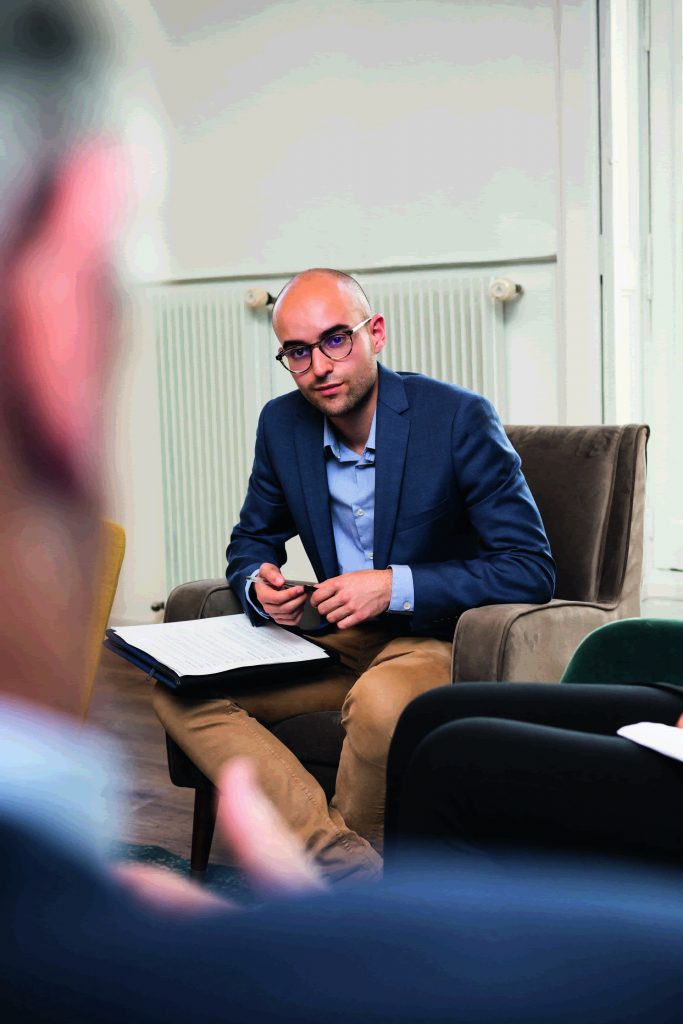
Teejana: McKinsey, EDS, Vivendi, Carlson, Best Buy… How have you managed to successfully adapt to such different contexts and challenges?
Hubert Joly: It’s true that I have had several lives, in several sectors. I’m quite curious about things and I need to be stimulated by something new. I like the metaphor of mountain-climbing: during an ascent, you should always have at least three climbers attached to the mountain. With only two, it’s dangerous: you can lose your balance. A career is rather like this. A job can be defined by four factors: sector, company, position, and geography. If you change too many of these at once, the risks are greater. But you can take that risk: in mountain-climbing, it’s always possible to jump! (laughter)
In my most recent career moves, I always had the same position – CEO – but in different sectors. When I took over the reins of Best Buy, people thought I was crazy, or suicidal. I was neither one nor the other. I did not know much about the business, but I had experience with companies threatened by the digital revolution. I was already familiar with sectors relevant to Best Buy; I had worked with video games, music, cinema and telephony. And Best Buy was looking for someone to transform the company, which I knew how to do.
Teejana: Should we always be guided by passion, even if this involves some difficult choices?
Hubert Joly: I think it’s really admirable to follow one’s passion, but if it doesn’t lead to a job and you want to earn a minimum amount of money, you will have a problem. I am passionate about tennis, but, luckily, my life doesn’t depend on how well I play the game! (laughter) The Japanese concept of ikigai is, I think, a good solution to this dilemma. You have to find the meeting point between what you love, what you’re good at, what the world needs, and what will earn you some money. Find your ikigai!
Teejana: And your advice for all those who would like to be CEOs one day?
Hubert Joly: I would remind them of the saying, “The best leaders don’t climb to the top; they are carried to the top.” A business leader is distinguished by his ability to bring employees along with him and to create new leaders. This won’t be the case for those whose only goal is to be successful themselves. In addition, if your goal is to be a CEO, what will you do once you are one? It’s not an end in itself.
Pierre: Corie Barry took over the leadership of Best Buy from you this Tuesday. What are you going to do now?
Hubert Joly: In the short term I’ll remain the executive chairman of Best Buy. Corie wanted me to continue to work with her. I will therefore be available to offer any support she may need from me. She has given me certain projects: I’m currently very involved in the matter of customs regulations with China, for example. Then, a new chapter of my life will begin. I will be 60 in August and I have no intention of spending the next 25 or 30 years playing golf in Florida!
My mission now will be to give back, which will take several forms. I will help management teams through boards of directors and mentoring projects. I’d also like to write a book to share what I’ve learned about leadership. I think I’ll also get involved in teaching and philanthropic efforts. I will remain guided by the same sense of purpose: to try to make a positive difference in the lives of those around me.
Published by Marianne Gérard

